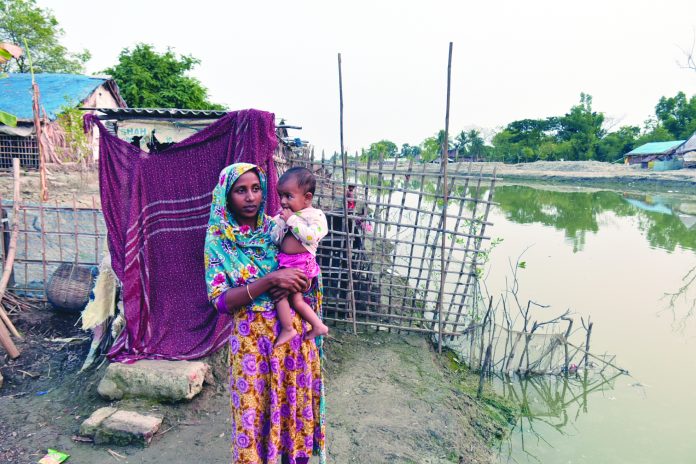Due to geographical placement, many Bangladeshis are affected by frequent natural disasters like flash flood, cyclone, tidal surge, coastal waterlogging and saline water intrusion. The scale and severity of these disasters are on the rise due to the changing climate, which poses a huge threat to the country’s development. Multiple global climate risk indices puts Bangladesh among the worst affected countries with millions facing adverse consequences.
Masuma Khatun, 20, a housewife from Satkhira, is one such victim. Originally from Koira in neighbouring Khulna district, she grew up watching river erosion and experiencing other climate hazards including salinity, cyclone and tidal surge.
“My in-laws were in Koira,” she said, “They had nowhere to go when the embankment suddenly collapsed. They were unable to live there anymore and moved here. They lost their crops, fish, homes, and everything.”
Masuma now lives with her husband and little daughter in a small mud house on Khas land in Shovnali union. The small river that flows through the other side of the house poses a constant threat. Intrusion of saline water is common and her six-month-old daughter precariously plays along the bank, just feet away from her rickety house. Masuma has no place else to go.
Now a participant of the PPEPP project, Masuma is receiving various support including for livelihoods and improved nutrition. In addition, she received emergency cash support to buy food, medicine and other lifesaving items amid the Covid-19 pandemic.
“I got vegetable seeds from Unnayan [a partner organisation]. I also got money during the emergency period,” Masuma said.


